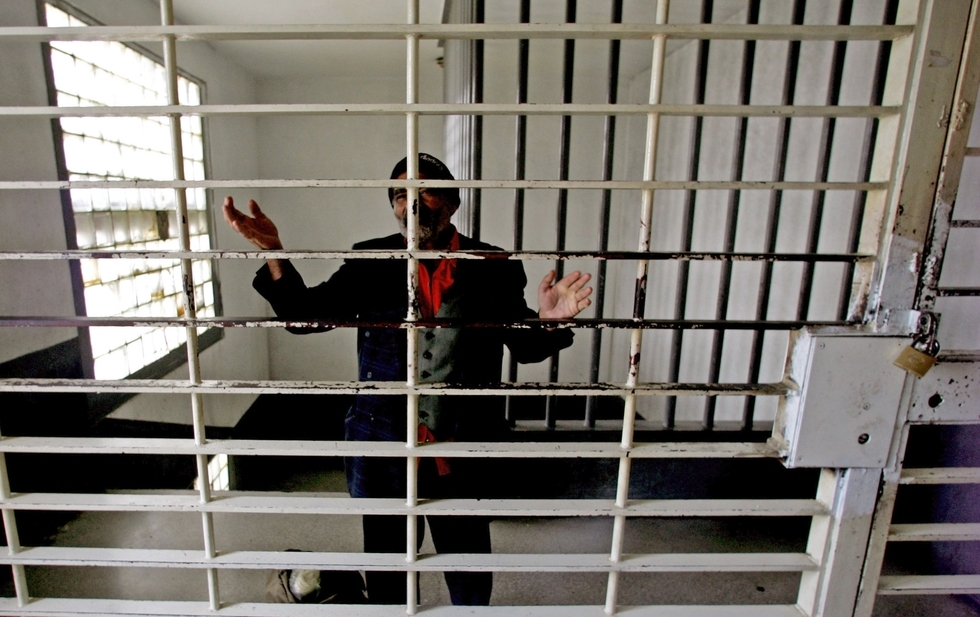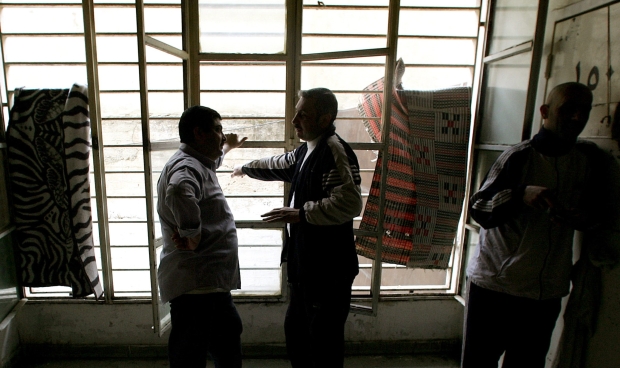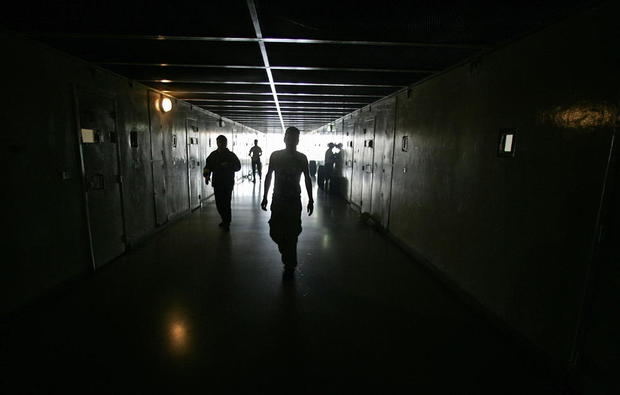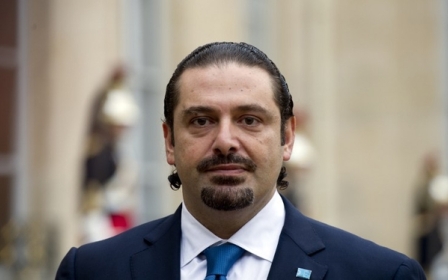Lebanon's anti-torture act: Is a flawed law better than no law at all?

Lebanon's new anti-torture law entered into force on 26 October after being debated in parliament over the course of five years.
Despite high hopes for this new legislation, the first of its kind, it suffers from numerous setbacks compared to a promising draft law of 2012, and falls short of the standards enshrined in the United Nations Convention Against Torture (UNCAT), ratified by Lebanon in 2000.
The newly introduced definition of torture remains restrictive since it is limited to acts performed during the investigation, trial and execution of sentences
Back in December 2012, a first draft law was presented to the Law and Administration Committee of the Lebanese Parliament. In the context of a political stalemate in the country, the text was discussed with the Ministry of Justice and civil society organisations, as well as with representatives of security agencies, the latter who are said to have pushed for certain amendments.
The law ultimately adopted by the parliament on 19 September 2017 suffers from numerous setbacks compared to the original draft law.
New law a step backwards from 2012 draft
The new legislation amends the already existing Article 401 of the Penal Code, which merely criminalised “violent practices” aimed at extracting confessions, and punished those responsible with penalties ranging from three months to three years in prison.
The newly introduced definition of torture remains restrictive since it is limited to acts performed during the investigation, trial and execution of sentences.
This goes against the principle of the absolute prohibition of torture, and creates a loophole that could lead to absurd situations in which a victim subjected to torture before the preliminary investigation would not fall within the scope of this provision.
In July 2017, four Syrian refugees died in military custody following mass raids in Arsal, in the northeast of Lebanon. While reports showed extensive bruising and cuts, clear signs that these men were subjected to torture, the army stated that they "suffered from chronic health issues that were aggravated due to the climate condition."
Impartial and independent investigations of torture allegations are rare in Lebanon
Under the new legislation, their cases would not fall under the definition of torture simply because these acts were committed before the preliminary investigation.
The adopted anti-torture law also decreased the penalties prescribed in the 2012 draft. While the latter had set a minimum of three years in prison, the 2017 text allows for sentences of between one and three years - a sanction normally applied only to misdemeanours - if torture does not result in death or physical or mental disability.
This provision lacks any deterrent effect.
If the victim is to die as a result of torture, the perpetrator faces between 10 and 20 years in prison, compared to 30 under the 2012 draft law.
To put this into context, an ordinary citizen found guilty of intentional homicide and inflicting acts of torture can face the death penalty in Lebanon, illustrating the double standards applied to state officials. Additionally, the new legislation subjects acts of torture to statutes of limitation.
Opaque process
Victims of torture can only initiate judicial proceedings between three and 10 years after they have been released from prison, depending on the gravity of the acts. Restricting criminal proceedings of a torture victim in this manner goes against the UN Convention Against Torture, according to which no statutory limitation may apply to acts of torture.
Before the bill’s adoption, members of parliament chose to reject a provision included in the 2012 draft law that allowed for the referral of members of the military and other security agencies to ordinary courts for cases of torture.
As it currently stands, the procedure for prosecuting members of the security forces for acts of torture remains unclear and contradictory.
On the one hand, under Article 15 of the Criminal Code of Procedure, the Public Prosecutor to the Court of Cassation decides whether to refer law enforcement officials – excluding members of the army – before an ordinary or a military court.
On the other hand, under Article 36 of the Military Code, members of the army, Internal Security Forces (ISF) and General Security (GS), are to be brought before a military court. Moreover, they can only be prosecuted upon authorisation from the ISF or GS general director or the army’s high command.
Due to this opaque process, it seems unlikely that perpetrators of torture will be prosecuted effectively, and chances are higher that the prosecution will be left to a military court rather than an ordinary court.
The former has been heavily criticised by civil society for its lack of independence and impartiality, and has been described as suffering from heavy political interference.
The military court's judges are appointed directly by the minister of defence, and are not required to have a law degree or any legal training. Proceedings may be held behind closed doors, which means that trials cannot be monitored. The prosecution of perpetrators of torture by their peers hinders any serious prospect of accountability.
Commenting on the passing of the law, Human Rights Watch argued that the law would only be effective if it is relied on to investigate and prosecute allegations of torture, and called on the authorities to make public the number of prosecutions and convictions for torture under the new law.
Failure to meet UN standards
By adopting this flawed version of the law, the Lebanese authorities have decided to ignore the recommendations issued by the UN Committee against Torture in 2017, as well as those they pledged to implement during the 2015 Universal Periodic Review before the Human Rights Council.
These recommendations included defining torture in line with the UNCAT, ensuring that penalties are commensurable with the gravity of the crime, establishing that there is no statute of limitations, and investigating and prosecuting allegations of torture.
Impartial and independent investigations of torture allegations are rare in Lebanon. When Layal Al Kayaje publicly denounced her rape by military officers during her 2013 detention, instead of opening up an investigation into her allegations of torture, the authorities sentenced her to one month in prison for “defamation and libel against the Lebanese army.”
In April 2017, during the country's review by the UN Committee Against Torture, the Lebanese delegation was asked to provide statistics on the prosecution of perpetrators of torture. The authorities merely responded that “exact figures were not available,” but claimed that “there was a large number of relevant cases”.
Such an attitude makes one question the authorities' and lawmakers’ real willingness to tackle the issue of torture. Back in 2014, the Committee Against Torture qualified this practice as "widespread" and "pervasive" and denounced its routine use by the Lebanese security services.
Considering Lebanon's fragile security situation and the heavy reliance on the military, politicians may not be willing to restrict the military in any way
Nevertheless, the authorities have continued to deny this practice, affirming that acts of torture had only been carried out in "isolated cases that did not correspond to any kind of state policy."
Fragile security situation
Following the adoption of the anti-torture law, some members of the parliament have reacted strongly against criticism from NGOs, claiming that the text complied with international standards.
Considering Lebanon's fragile security situation and the heavy reliance on the military, politicians may not be willing to restrict the military in any way, even by ensuring their practices are in line with international human rights standards.
In this context, it is not surprising that the law has not been challenged. Ten members of the parliament had the opportunity to do so before the Constitutional Council within 15 days of the law’s publication in the official gazette.
It is concerning that Lebanon has decided not to comply with UNCAT standards in its adoption of this legislation. Ultimately, the authorities seem to have decided that a flawed law is better than no law at all.
-Inès Osman is a French-Algerian human rights lawyer. She is a legal officer at the Alkarama Foundation in Geneva and works on Iraq, Jordan, Lebanon, Palestine and Syria
The views expressed in this article belong to the author and do not necessarily reflect the editorial policy of Middle East Eye.
Photo: A Lebanese priosner gestures from behind bars at Roumieh prison, northeast of Beirut, 07 April 2006. The detention centre, one of the biggest in the Middle East, holds 4,500 inmates but has a capacity of only 1,500 (RAMZI HAIDAR/AFP)
New MEE newsletter: Jerusalem Dispatch
Sign up to get the latest insights and analysis on Israel-Palestine, alongside Turkey Unpacked and other MEE newsletters
Middle East Eye delivers independent and unrivalled coverage and analysis of the Middle East, North Africa and beyond. To learn more about republishing this content and the associated fees, please fill out this form. More about MEE can be found here.







